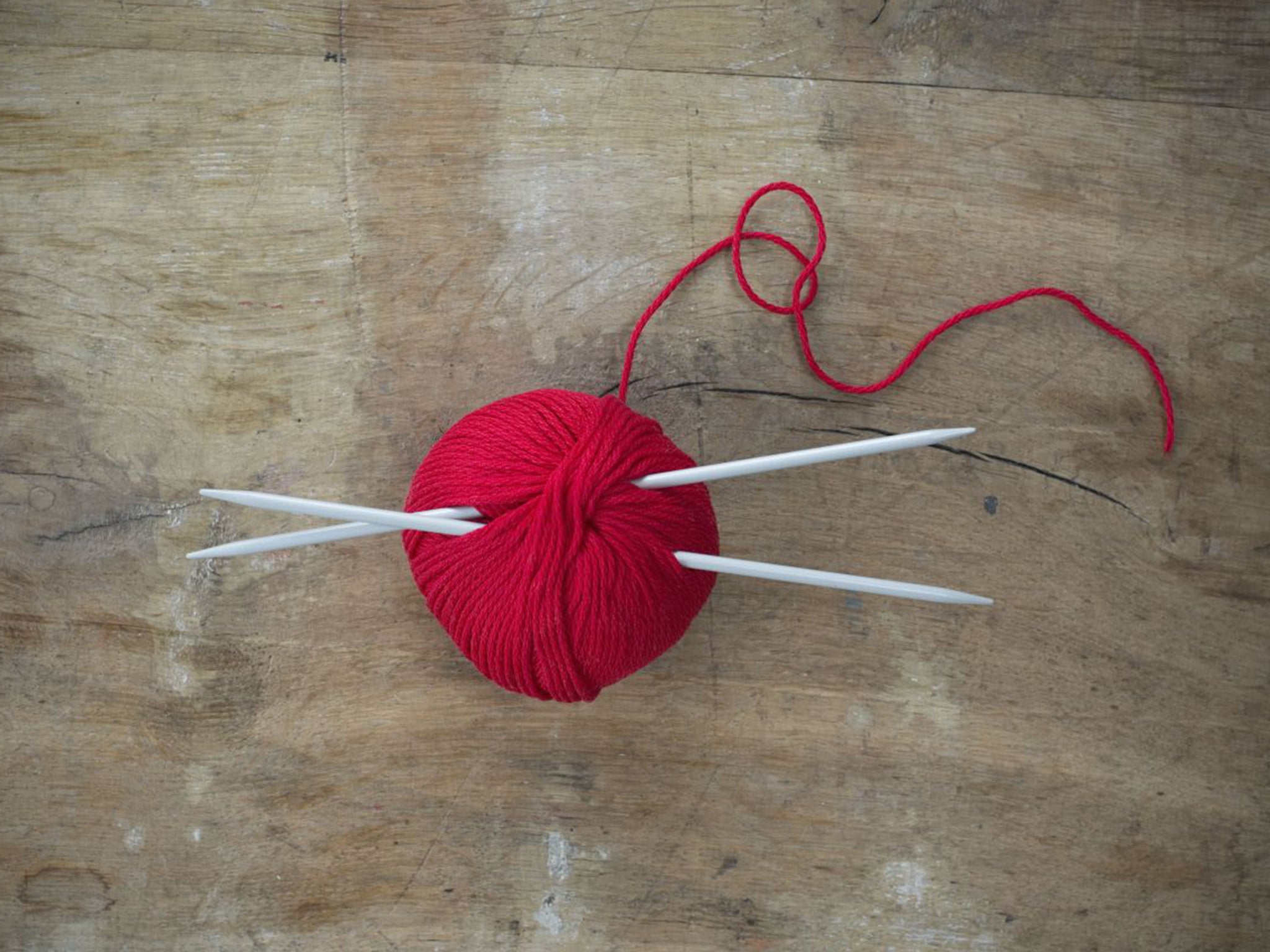Knitting: Increasing interest driving a new market in specialist British wool
'Huge numbers of knitters are interested in British wool, and conscious of what they’re buying'

The sight of sheep being driven across London Bridge in the capital each year has become an emblem of the ongoing success of the wool trade, a linchpin of the British economy from medieval times.
But prices for fleeces in the UK are so low that some farmers burn, bury or bin the woollen coats, rather than receive negligible gains. Now, a growing number of spinners are working directly with farmers to produce British wool.
Rachel Atkinson, a knitting editor whose father is a shepherd of Hebridean sheep on Escrick Park Estate in Yorkshire, was frustrated when her father concluded that it was cheaper to get rid of his fleeces than have them spun into wool.
She decided she wouldn’t see them go to waste – and to make wool herself.
“Huge numbers of knitters are interested in British wool, and conscious of what they’re buying,” she said. “Yet the majority of wool comes from China.
“There have been campaigns to raise milk prices, but I wonder about fleece prices.”
Her father received £9.40 in total for 300 fleeces last year, far under the British Wool Marketing Board’s average of £1.05 a kilo.
About 30 million kilos of wool is sold by the British Wool Marketing Board each year, 75 per cent to be exported. Prices have risen in the past five years. But with shearing at around £1.20 per sheep plus the expense of transporting fleeces, a farmer can often see minimal return on a flock’s wool.
Traditional and rare breeds, including the Hebridean, have dispensation to be sold directly to spinners, and this is growing as knitters’ concerns for provenance are inspiring a British wool movement. In Devon, breeders have created the Exmoor Horn wool brand, and this month started selling socks made from the wool.
Louise Scollay, who founded Knit British in 2012 in a bid to support UK wool, said: “Like food, buying local in terms of wool is incredibly important and has grown significantly in the last two or three years. Within the last year, two of the large commercial yarn companies have released British wool into their ranges.”
Emma Boyles, founder of The Little Grey Sheep in Hampshire, sells wool from her flock reared for their fine fleeces. “If we don’t buy and appreciate what’s in front of us, we’ll lose it,” she said. “Not just businesses; we’ll lose the historical expertise, and the habitat. A lot of our traditional grazing patterns supported huge diversity in our farmland.”
Blacker Yarns spinning business, founded by Sue Blacker, has trebled in size since launching 10 years ago in Cornwall. She sees a parallel between farmers’ markets and British wool. She pays double the standard price for fleeces from farmers, saying it’s the “very specialist end of the market”.
About 65 per cent of British wool is best suited to carpets, while finer fleeces can be spun into knitting yarn. Ms Blacker said: “Carpet wool has to work in large volumes because of scale economies, whereas rare-breed wool is good for craft, specialist yarns. British wool is important: we have amongst the highest animal welfare standards worldwide and it supports British farming and manufacturing.”
Isla Davison, founder of BritYarn, which launched in June and sells British wool, believes competition from man-made fibres remains a huge threat to the wool industry. “There is still so much emphasis, in knitting and crochet magazines, on cheaper foreign wool and made-made fibres.”
A 100g ball of acrylic sells for around £1.70, while Shetland wool sells from £2.80, BritYarn from £4.75 for 100g and rare Wensleydale wool sells for more than £7.50 a ball.
Verity Britton, founder of Baa Ram Ewe in Leeds, a British wool shop that holds knitting nights, believes the growth in interest in crafts “encourages farmers to think wool a worthwhile part of their farming business. People have begun to realise British wool can compete with Australian merino. No one wants farmers to burn fleeces because they cannot make the numbers work. But also consumers will have a voice on how much they are genuinely prepared to pay for British wool.”
Stephen Spencer, head of marketing at the British Wool Marketing Board, said: “In an ideal world, everybody would like to see wool worth more. The strength of the pound means it’s dearer to export and wools from other countries are cheaper to buy in.”
Rachel Atkinson blogs about making wool at MyLifeinKnitwear.com
Subscribe to Independent Premium to bookmark this article
Want to bookmark your favourite articles and stories to read or reference later? Start your Independent Premium subscription today.

Join our commenting forum
Join thought-provoking conversations, follow other Independent readers and see their replies